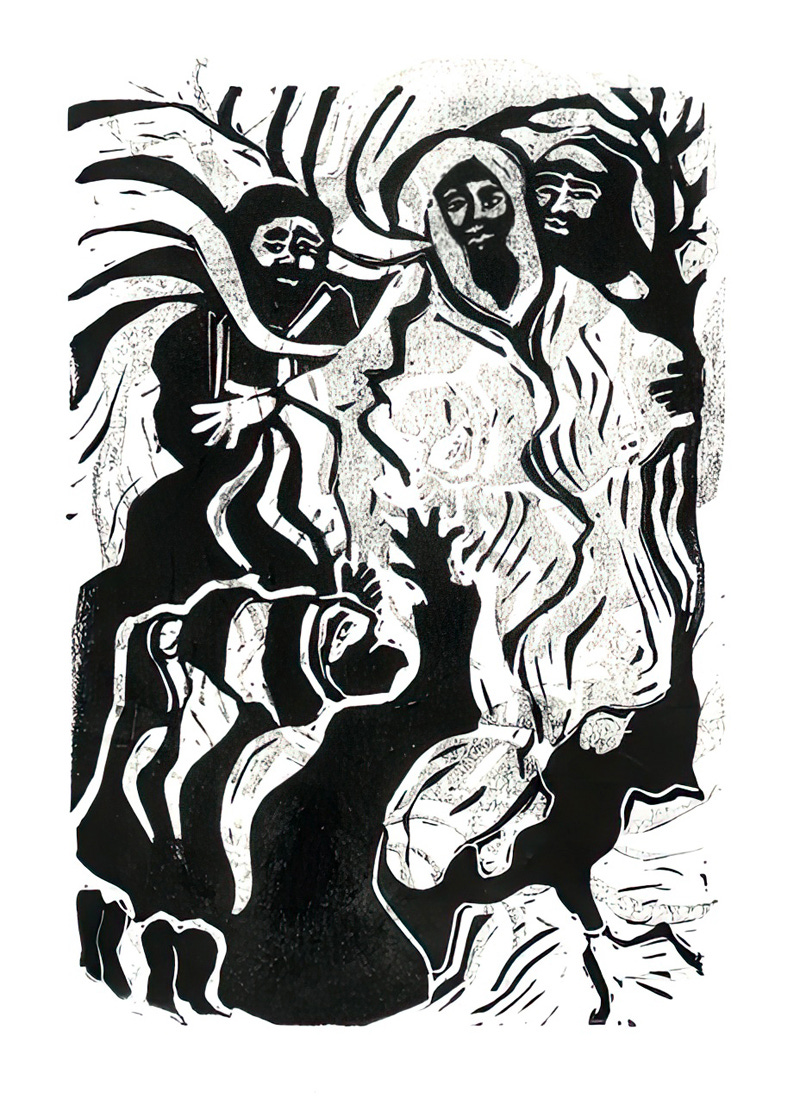Mountains, like vast bodies of water, have been renamed. Their identities shifting ever so slightly as the people that live around these places wrestle with what power there might be in a name. Some say it will always be Denali. Others ignore the heritage that dwells in their midst. Not wanting any part of the history of the people who first called this place home.

“Well, I don't know what will happen now. We've got some difficult days ahead. But it really doesn't matter with me now, because I've been to the mountaintop,” preached the Rev. Dr. Martin Luther King, Jr. at the height of the Civil Rights Movement. He didn’t imagine that he’d see the end. He wouldn’t be there when that dream would be fully realized. Maybe that’s not the point. The point is to follow God’s call, and as he says in that sermon, God has “allowed me to go up to the mountain. And I've looked over. And I've seen the Promised Land. I may not get there with you. But I want you to know tonight, that we, as a people, will get to the promised land!”
If you were in church on Sunday, you might have heard about another mountaintop where Jesus goes to pray. He takes his friends with him but something happens there. Something happened up on top of the mountain. Something so strange and mysterious that we think we have to explain it.
There is so much that we wish we could explain right now. So much is uncertain and we are struggling to define it so that we can figure out how to live through it.
So that it feels like we haven’t yet made it down the mountain. We are still up there in the clouds trying to hold onto this thing that we can’t explain. We don’t know what awaits us. We can’t know what will happen but it is good here on this mountaintop so it is better that we stay. No one has to go. We can just stay in this moment up in the clouds up on top of the mountain, but we can't. We can't stay on the mountain anymore than we can hide inside our fears.
We can't stay on the mountain. We can't build dwellings and camp out there forever because as the Lutheran pastor Heidi Neumark writes, "living up high in the rarefied air isn't the point of transfiguration. It was never intended as a breathing space for a precious few, never meant as a private experience of spirituality removed from the public square. It was a vision to carry us down, a glimpse of unimagined possibility at ground level."
Heidi wrote this about Transfiguration Lutheran Church in the South Bronx where she pastored for almost twenty years. When she came to that church, which she writes about in her beautiful book Breathing Space, they were barely surviving. It was a church that struggled to see glory except in their worship. There was glory there inside that church but there was no hope. Outside of the church they saw nothing but drugs and crime and the lack of opportunity for their children. So they retreated into the church. They hid from the world. They tried to find glory where they could.
As Heidi writes, recalling the name of that congregation, "Transfiguration behind closed sanctuary doors existed in name only. [But, she says, remembering that mountaintop moment with Jesus,] The glorious reality was outside in the most unexpected places."
There's a transfiguration that awaits us. There is glory out there when we come down from the mountain. There is a whole world out there begging us to look, asking us for justice and love. There's so much glory to see if we could just come down from the mountain and look.
Glory is one of those tricky church words. It’s hard to decipher and even harder to explain because it doesn’t translate well. We think it means shiny, happy things but the root of the word comes from what is heavy or substantial. Wonder about this complex definition as you gaze upon this artwork depicting this mountaintop moment with Jesus and his friends.

If you feel like you are able to find some hint of a definition, will you share it with us?
Take a walk through your neighborhood and practicing naming the things that you see. Learn the names of native plants and practice claiming the place you are with the names of the people who lived in this place long before you arrived. Notice how this practice shifts your relationship to the things and the people around you.
Stepping into the wilderness: Here is a guided practice through Psalm 50 which begins the season of Lent, sometimes, but not this year.
Wandering into the unknown: Which contains my current mantra.
Prone to Wander: An interview with Joanna Harader about her wonderful new devotional for Lent, especially if you don't like devotionals.
In the middle of Lent: Or what happens when it feels like nothing is working and you aren’t sure what to do with yourself.
A Prayer for Lent’s Beginning: Which includes a graphic to use as a background on your phone or post to your fridge.
The practice of mercy: It was a sermon, but it is also something very much tied to this holy season of Lent. How will you practice mercy in these days?






